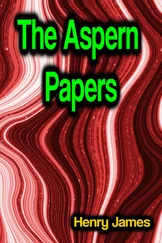Henry James - The American Scene
Здесь есть возможность читать онлайн «Henry James - The American Scene» — ознакомительный отрывок электронной книги совершенно бесплатно, а после прочтения отрывка купить полную версию. В некоторых случаях можно слушать аудио, скачать через торрент в формате fb2 и присутствует краткое содержание. Жанр: unrecognised, на английском языке. Описание произведения, (предисловие) а так же отзывы посетителей доступны на портале библиотеки ЛибКат.
- Название:The American Scene
- Автор:
- Жанр:
- Год:неизвестен
- ISBN:нет данных
- Рейтинг книги:3 / 5. Голосов: 1
-
Избранное:Добавить в избранное
- Отзывы:
-
Ваша оценка:
- 60
- 1
- 2
- 3
- 4
- 5
The American Scene: краткое содержание, описание и аннотация
Предлагаем к чтению аннотацию, описание, краткое содержание или предисловие (зависит от того, что написал сам автор книги «The American Scene»). Если вы не нашли необходимую информацию о книге — напишите в комментариях, мы постараемся отыскать её.
The American Scene — читать онлайн ознакомительный отрывок
Ниже представлен текст книги, разбитый по страницам. Система сохранения места последней прочитанной страницы, позволяет с удобством читать онлайн бесплатно книгу «The American Scene», без необходимости каждый раз заново искать на чём Вы остановились. Поставьте закладку, и сможете в любой момент перейти на страницу, на которой закончили чтение.
Интервал:
Закладка:
Still, as I have already hinted, there was always the case of the one other rescued identity and preserved felicity, the happy accident of the elder day still ungrudged and finally legitimated. When I say ungrudged, indeed, I seem to remember how I had heard that the divine little City Hall had been grudged, at a critical moment, to within an inch of its life; had but just escaped, in the event, the extremity of grudging. It lives on securely, by the mercy of fate—lives on in the delicacy of its beauty, speaking volumes again (more volumes, distinctly, than are anywhere else spoken) for the exquisite truth of the conferred value of interesting objects, the value derived from the social, the civilizing function for which they have happened to find their opportunity. It is the opportunity that gives them their price, and the luck of there being, round about them, nothing greater than themselves to steal it away from them. They strike thus, virtually, the supreme note, and—such is the mysterious play of our finer sensibility!—one takes this note, one is glad to work it, as the phrase goes, for all it is worth. I so work the note of the City Hall, no doubt, in speaking of the spectacle there constituted as "divine"; but I do it precisely by reason of the spectacle taken with the delightful small facts of the building: largely by reason, in other words, of the elegant, the gallant little structure's situation and history, the way it has played, artistically, ornamentally, its part, has held out for the good cause, through the long years, alone and unprotected. The fact is it has been the very centre of that assault of vulgarity of which the innumerable mementos rise within view of it and tower, at a certain distance, over it; and yet it has never parted with a square inch of its character, it has forced them, in a manner, to stand off. I hasten to add that in expressing thus its uncompromised state I speak of its outward, its aesthetic character only. So, at all events, it has discharged the civilizing function I just named as inherent in such cases—that of representing, to the community possessed of it, all the Style the community is likely to get, and of making itself responsible for the same.
The consistency of this effort, under difficulties, has been the story that brings tears to the eyes of the hovering kindly critic, and it is through his tears, no doubt, that such a personage reads the best passages of the tale and makes out the proportions of the object. Mine, I recognize, didn't prevent my seeing that the pale yellow marble (or whatever it may be) of the City Hall has lost, by some late excoriation, the remembered charm of its old surface, the pleasant promiscuous patina of time; but the perfect taste and finish, the reduced yet ample scale, the harmony of parts, the just proportions, the modest classic grace, the living look of the type aimed at, these things, with gaiety of detail undiminished and "quaintness" of effect augmented, are all there; and I see them, as I write, in that glow of appreciation which made it necessary, of a fine June morning, that I should somehow pay the whole place my respects. The simplest, in fact the only way, was, obviously, to pass under the charming portico and brave the consequences: this impunity of such audacities being, in America, one of the last of the lessons the repatriated absentee finds himself learning. The crushed spirit he brings back from European discipline never quite rises to the height of the native argument, the brave sense that the public, the civic building is his very own, for any honest use, so that he may tread even its most expensive pavements and staircases (and very expensive, for the American citizen, these have lately become,) without a question asked. This further and further unchallenged penetration begets in the perverted person I speak of a really romantic thrill: it is like some assault of the dim seraglio, with the guards bribed, the eunuchs drugged and one's life carried in one's hand. The only drawback to such freedom is that penetralia it is so easy to penetrate fail a little of a due impressiveness, and that if stationed sentinels are bad for the temper of the freeman they are good for the "prestige" of the building.
Never, in any case, it seemed to me, had any freeman made so free with the majesty of things as I was to make on this occasion with the mysteries of the City Hall—even to the point of coming out into the presence of the Representative of the highest office with which City Halls are associated, and whose thoroughly gracious condonation of my act set the seal of success upon the whole adventure. Its dizziest intensity in fact sprang precisely from the unexpected view opened into the old official, the old so thick-peopled local, municipal world: upper chambers of council and state, delightfully of their nineteenth-century time, as to design and ornament, in spite of rank restoration; but replete, above all, with portraits of past worthies, past celebrities and city fathers, Mayors, Bosses, Presidents, Governors, Statesmen at large, Generals and Commodores at large, florid hosts, looking so unsophisticated now, of years not remarkable, municipally, for the absence of sophistication. Here were types, running mainly to ugliness and all bristling with the taste of their day and the quite touching provincialism of their conditions, as to many of which nothing would be more interesting than a study of New York annals in the light of their personal look, their very noses and mouths and complexions and heads of hair—to say nothing of their waistcoats and neckties; with such colour, such sound and movement would the thick stream of local history then be interfused. Wouldn't its thickness fairly become transparent? since to walk through the collection was not only to see and feel so much that had happened, but to understand, with the truth again and again inimitably pointed, why nothing could have happened otherwise; the whole array thus presenting itself as an unsurpassed demonstration of the real reasons of things. The florid ghosts look out from their exceedingly gilded frames—all that that can do is bravely done for them—with the frankest responsibility for everything; their collective presence becomes a kind of copious tell-tale document signed with a hundred names. There are few of these that at this hour, I think, we particularly desire to repeat; but the place where they may be read is, all the way from river to river and from the Battery to Harlem, the place in which there is most of the terrible town.
Конец ознакомительного фрагмента.
Текст предоставлен ООО «ЛитРес».
Прочитайте эту книгу целиком, купив полную легальную версию на ЛитРес.
Безопасно оплатить книгу можно банковской картой Visa, MasterCard, Maestro, со счета мобильного телефона, с платежного терминала, в салоне МТС или Связной, через PayPal, WebMoney, Яндекс.Деньги, QIWI Кошелек, бонусными картами или другим удобным Вам способом.
Интервал:
Закладка:
Похожие книги на «The American Scene»
Представляем Вашему вниманию похожие книги на «The American Scene» списком для выбора. Мы отобрали схожую по названию и смыслу литературу в надежде предоставить читателям больше вариантов отыскать новые, интересные, ещё непрочитанные произведения.
Обсуждение, отзывы о книге «The American Scene» и просто собственные мнения читателей. Оставьте ваши комментарии, напишите, что Вы думаете о произведении, его смысле или главных героях. Укажите что конкретно понравилось, а что нет, и почему Вы так считаете.












